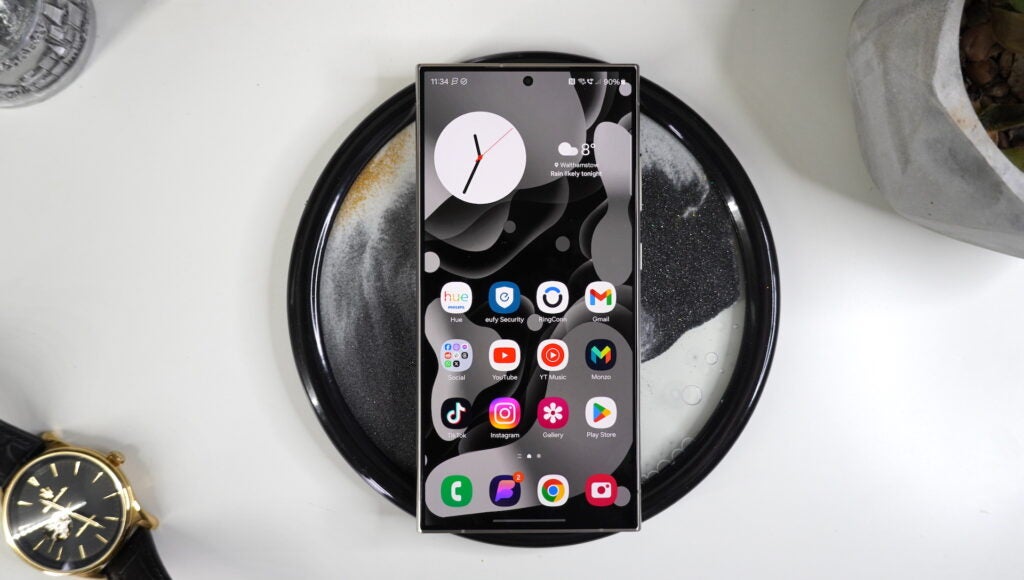Shopping for a new device and noticed the term “IP69 rating”? Or perhaps you’re already familiar with IP ratings such as IP54 or IPX7 and are curious to learn more?
Whatever the reason, you’ve come to the right place. We explain everything you need to know about IP69, including what it means, how effective it is and which devices currently sport the rating.
What is an IP rating?
We’ll start by explaining what an IP rating is. IP, short for Ingress Protection, is a rating system developed by the International Electrotechnical Commission (IEC) and explains how well a device can withstand potentially harmful foreign bodies like dust and water.
Devices with an IP rating are graded with two numbers. The first number represents how well the gadget is protected from solid intrusions like dust while the second shows how well it can withstand water.
The first number ranges from zero to six while the second is from zero to nine. With both, the higher the number, the better protected the device is.
In instances where there’s an X in lieu of a numerical grade, this means there isn’t data available to provide a conclusive rating.


What does an IP69 rating mean?
A device with an IP69 rating boasts the highest possible rating given by the IEC. In a nutshell, the rating means the gadget is dust-tight and protected against high pressure and temperature water jets.
To elaborate, the IEC states that water projected at high pressure and temperature against the enclosure from any direction shall not have harmful effects.
Is IP69 waterproof?
The term waterproof should be used with caution. While an IP69 device can endure high pressure water jets at warmer temperatures, the IEC doesn’t explicitly state that it can withstand immersion in water.
With this in mind, we would recommend you exercise caution when using an IP69-rated device in water and avoid submerging it in such areas.
IP69 vs IP69K: Which is stronger?
To slightly confuse things, you’ll also find certain devices sporting an IP69K rating. While IP69 and IP69K sport the same dust and water protection, the latter offers an extra layer of protection for certain devices and equipment.
Essentially, the ‘K’ means that the device in question can withstand hot and high pressure water jets and steam cleaning, for a more hygienic clean.
Unlike IP69, an IP69K rating won’t necessarily be found on everyday devices like smartphones or smartwatches and will instead be found in industrial environments where equipment needs to withstand high water pressure and temperature cleans to stay sanitary.
Therefore an IP69K rating ensures industries such as restaurants and care facilities can choose equipment that’s durable enough to be cleaned hygienically without causing damage.
IP68 vs IP69: Is IP69 worth it?
While a device with either an IP68 and IP69 rating is dust-tight, the difference is with their respective water resistance ratings. The IEC explains that the eight rating means the device is “protected against the effects of continuous immersion in water”.
It continues that “ingress of water in quantities causing harmful effects shall not be possible when the enclosure is continuously immersed in water”. The IEC then explains that the exact conditions of this can be detailed by the manufacturer to the user, so be sure to check the exact requirements of your handset before submerging it in water.
For example, the Samsung Galaxy S24 Ultra has an IP68 rating, which Samsung explains means that the handset can withstand submersion in up to 1.5 metres of freshwater for up to 30 minutes.
On the other hand, the iPhone 16’s IP68 rating can withstand up to six metres of water for just 30 minutes.


Is IP69 worth it?
Following on from the above, you may be questioning whether an IP69 device is actually worth it and the reality is that this depends on what the device actually is.
Arguably, a smartphone or smartwatch is better suited to an IP68 rating as the likelihood of being in a situation where a water jet is shooting at your device is arguably lower compared to the instance of accidentally dropping your gadget in a bath or pool.
With this in mind, we’d argue that if you’re shopping for a smartphone, smartwatch or other everyday gadget then an IP68 rating is better suited for most people than IP69.


Which phone has an IP69 rating?
Smartphones rated IP69 aren’t common, with most opting for an IP68 rating instead. Having said that, there are a few Android smartphones that currently sport an IP69 rating including:




